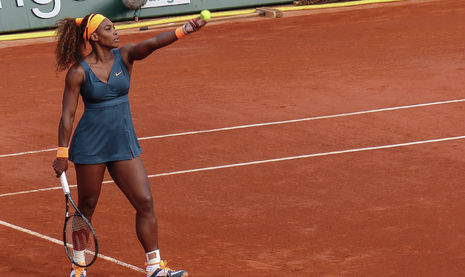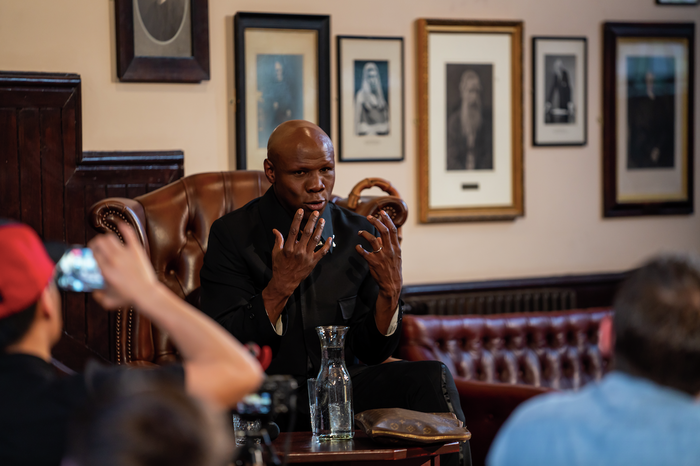The social influence of Black athletes through my eyes
As this year’s Black History Month comes to an end, Tatiana Kasujja discusses the timelessness of Black sporting achievements and how they’ve inspired her ever since she was a little girl

Celebrating the contributions of Black athletes to sport is somewhat of the norm for me. As a Black British female who is also a student athlete, I take regular inspiration from the likes of Eniola Aluko, Shelly-Ann Fraser-Pryce, and Ian Wright — whose places in the sporting world had a strong influence on my decision to participate in sports when I was younger. Yet out of all these remarkable athletes, there’s one that, in my mind, stands powerfully alone.
It’s 2014, I’m sitting at the dinner table with my family during what is supposed to be a weekend family lunch. But instead of discussing how our weeks have been, our eyes are glued to the TV. It’s a Saturday afternoon and we’re watching the Wimbledon Singles women’s final: Serena Williams vs. Garbiñe Muguruza. I remember that tense feeling watching Serena rally back from a breakdown to take the first set. I remember being in awe of her serves as she powered those aces across the court. She was also striking some of Muguruza’s returns with the kind of strength I haven’t seen any other female player match to date. Most of all, I remember my parents and I celebrating like crazy because she had done it: Grand Slam number 21.
“I’ve always been a strong believer in the power of positive and truthful representation”
Now let me take you back five years before that. I had just asked my Dad for a new tennis racket because I wanted to start playing tennis like Serena. Reflecting on this moment, I now realise that it signified the positive impact that someone great like Serena could have on a small Black girl from London like me. All the way from the US, stories of her successes and her feats felt so close to me. For me, she represented what it meant to fight for every title and to make her presence known. Perhaps more importantly, however, she was someone who looked like me.
Although I gave up my ambitions to play tennis a long time ago, I still see a bit of myself in her story. Through the various social networks, spaces, and localities I have been exposed to across the stages of my life, I have come to realise — as well as we all do — that navigating uncharted territory can sometimes be difficult. But when someone you can relate to has gone before you and managed to break through barriers, pushing the ceiling just that bit higher, you realise that you have something more to aspire towards. Somehow that feeling of success becomes shared —when she loses, I feel like I lose. And when she wins, I feel like we all win. Our shared experiences are what connect us.
“Representation, for me, is everything”
I’ve always been a strong believer in the power of positive and truthful representation. On and off the court, the pitch, the track, or the field, how we are represented — and how we represent ourselves — matters. Many of the athletes I look up to demonstrate this. It serves as a reminder that although I may be a student athlete, once the final whistle blows there’s still more that I can have to offer. For Serena, among other things, it’s promoting body positivity. For Marcus Rashford OBE, it’s his determination to make sure that no child goes hungry.
This Black History Month, it’s important that together we can acknowledge and appreciate Black athletes’ contributions not only to sport, but also to the promotion of positive representation. In sharing the impact of one of my favourite sporting heroes and shining a spotlight on just a fraction of what she has been able to achieve, I want to stress that success for me is not measured by the number of Grand Slam titles.
Neither do I measure it by number of goals scored, medals collected, nor world records broken. Instead, my admiration for these athletes comes from seeing a piece of myself, my story, and my experiences in all that they have managed to accomplish; seeing that a part of my own identity is reflected in them.
Representation, for me, is everything.
 Comment / College rivalry should not become college snobbery30 January 2026
Comment / College rivalry should not become college snobbery30 January 2026 Features / Are you more yourself at Cambridge or away from it? 27 January 2026
Features / Are you more yourself at Cambridge or away from it? 27 January 2026 Science / Meet the Cambridge physicist who advocates for the humanities30 January 2026
Science / Meet the Cambridge physicist who advocates for the humanities30 January 2026 News / Cambridge study to identify premature babies needing extra educational support before school29 January 2026
News / Cambridge study to identify premature babies needing extra educational support before school29 January 2026 News / Vigil held for tenth anniversary of PhD student’s death28 January 2026
News / Vigil held for tenth anniversary of PhD student’s death28 January 2026










